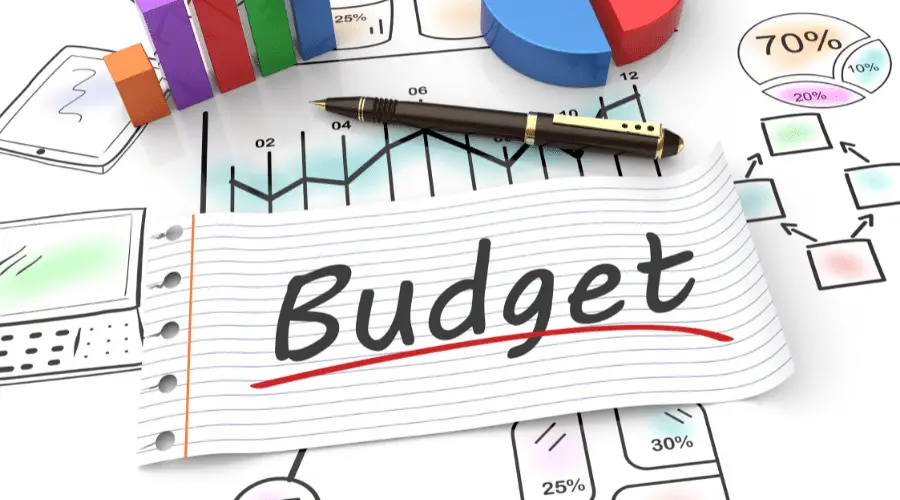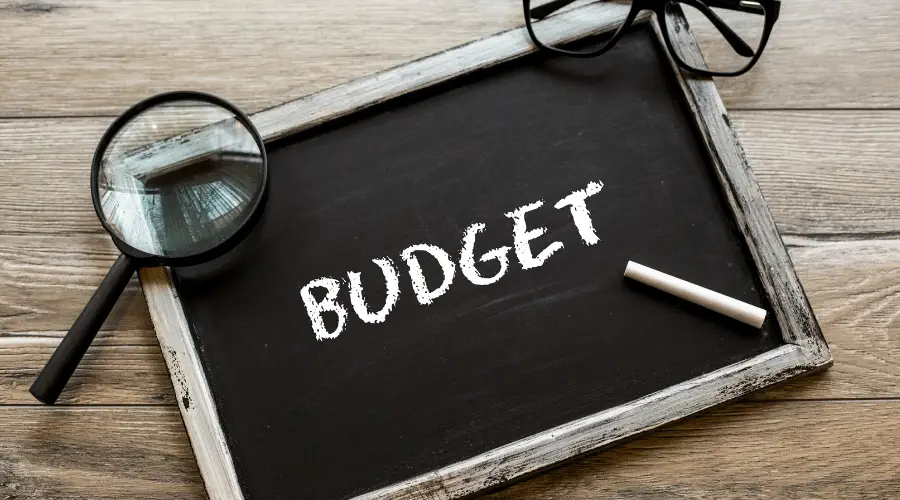If you’ve been struggling to save money, you may have heard that budgeting is the key to financial success. But does budgeting actually work? Can it really help you achieve your financial goals?
A lot of people think that being rich is about having a lot of money. But the truth is, being rich is about having your finances in order. When you budget, you decide what you’re going to spend and what you’re going to save. This allows you to see where money is going and where you can cut back.
If you’re looking to get your finances in order, budgeting is a great place to start. In this blog, we will look at all aspects of budgeting and give you an idea of how you can start organising your finances for greater success.
Can budgeting make you rich?
It may not make you rich overnight, but if you stick to a budget and are disciplined with your spending, you will slowly but surely grow your wealth. A budget forces you to be aware of your income and expenses, which puts you in control of your finances. It also allows you to track your progress and see how much money you are saving each month. This makes it easy to adjust your spending if you need to save more money. Finally, a budget gives you a clear plan for how to use your money, which makes it less likely that you will waste it. By following a budget, you can make slow and steady progress towards becoming wealthy.

What is budgeting?
Budgeting is an essential tool for managing your finances. It involves creating a plan for how you will spend your money, and then sticking to that plan. This can help you to stay on track with your spending, and avoid overspending or getting into debt. Budgeting can also help you to save money for specific goals, such as a holiday or a new car. To start budgeting, you will need to figure out your income and expenses. Once you know how much money you have coming in and going out, you can start to allocate funds to different areas of your life. For example, you may want to set aside money for bills, food, entertainment, and savings. Once you have a budget in place, it is important to stick to it as closely as possible. This may require making some sacrifices, but it will be worth it in the long run. By budgeting wisely, you can take control of your finances and achieve your financial goals.
Do rich people have a budget?
When it comes to personal finances, even the wealthiest individuals need to be mindful of their spending. While having a large income may make it easier to cover expenses, it is still important to live within one’s means and avoid excessive debt. For this reason, even the richest people usually have some sort of budget in place. By carefully tracking their income and expenses, they can ensure that they are not spending more than they can afford. Additionally, a budget can help to set priorities and make sure that money is being spent in the most important areas. While not every penny needs to be accounted for, having a budget is still a good way to maintain financial stability, even for those with a considerable amount of wealth.
It’s worth considering that rich people likely grew their initial wealth through an ability to budget, save and invest. When you have more money, you have more opportunities to make mistakes with your finances so a budget can help to prevent overspending and keep your finances on track.
Can you build wealth by saving money?
Whilst it’s unlikely that you’ll be able to save enough cash to create long-term wealth, you can learn to leverage your savings to work for you. So how do you use savings to build wealth? The answer may seem simple – invest your money – but there are a number of different ways to go about it. The key is to find an investment strategy that aligns with your overall financial goals. For example, if you’re saving for retirement, you’ll want to focus on investments that offer stability and growth potential. On the other hand, if you’re looking to generate income in the short term, you might be more interested in higher-yielding investments. No matter what your goals are, there are a number of different options available to you. The best way to figure out which strategy is right for you is to consult with a financial advisor. They can help you assess your risk tolerance and develop a plan that meets your needs.
How long does it take to make a budget?
There is no one-size-fits-all answer to the question of how long it takes to make a budget. The amount of time required will depend on various factors, including the complexity of your financial situation, the software you use, and your own level of comfort with budgeting. That said, most experts agree that the process of creating a budget can be divided into four basic steps: gathering information, setting goals, categorizing expenses, and tracking progress. Depending on your particular circumstances, each of these steps may take anywhere from a few minutes to several hours. However, once you’ve completed all four steps, you should have a working budget that you can begin using to manage your finances.
What are the main things to include in a budget?
When creating a budget, there are a few key things to keep in mind. First, you need to track your income and expenses. This will give you a clear picture of where your money is going and where you may be able to cut back. For the purpose of budgeting, Income includes wages, salaries, expected royalties, bonuses and dividends. In general, if you receive money from any source, it counts as income. Your expenses will be split into two areas, fixed expenses will include any regular outgoings like rent, mortgage payments, bills, and insurance. You will then want to set an expense limit on variables such as food, general spending and leisure activities.
Next, you need to set aside money for savings and emergency expenses. This will help you avoid going into debt if unexpected expenses arise. Finally, you need to make sure that your budget is realistic. If you try to save too much too soon, you may find yourself getting discouraged and giving up altogether. By following these simple tips, you can create a budget that will work for you and help you meet your financial goals.

How to budget money on a low income?
It can be difficult to budget on a low income, but there are some strategies that can help. First, it’s important to create a realistic budget that accounts for all of your essential expenses and make sure that you are covering them. This might include rent, food, transportation, and utilities. Once you have a good understanding of your monthly costs, you can start looking for ways to cut back in other areas.
Another helpful tip is to set up automatic transfers so that a certain amount of money is automatically deposited into your savings account each month. Finally, try to avoid using credit cards or taking out loans whenever possible, as this can quickly lead to debt. By following these tips, you can make saving easier and help yourself build up a financial cushion for the future.
How do I manage my budget as my income increases?
As your income increases, it’s important to adjust your budget accordingly. Depending on your financial goals, you may want to save and invest more money or pay off debt faster. Here are a few tips for how to adjust your budget as you start to earn more:
1. Review your expenses: Take a close look at your spending habits and see where you can cut back. For example, you may be able to save money by eating out less often or cutting back on unnecessary subscriptions.
2. Invest in yourself: Use some of your extra money to invest in your own education and career development. This can help you earn even more money in the future.
3. Save for a rainy day: Make sure to put some of your extra money into savings so that you have a cushion for unexpected expenses.
4. Give yourself a raise: If you’re used to living on a tight budget, you may want to give yourself a small raise when you start earning more money. This can help you adjust to your new financial reality and avoid lifestyle inflation.
As always, please remember I am an Accountant, not your Accountant. In this post (and all of my others) I share information and often give anecdotes about what has worked well for me. However, I do not know your financial situation and I do not offer individual financial advice. If you are unsure of a particular financial subject, please hire a qualified financial advisor to guide you.
This article has been written by Luke Girling, ACA – a qualified Accountant and personal finance enthusiast in the UK. Please visit my ‘About‘ page for more information. To verify my ACA credentials – please search for my name at the ICAEW member finder. Please comment below or contact me here to get in touch with questions or ideas for future posts.
